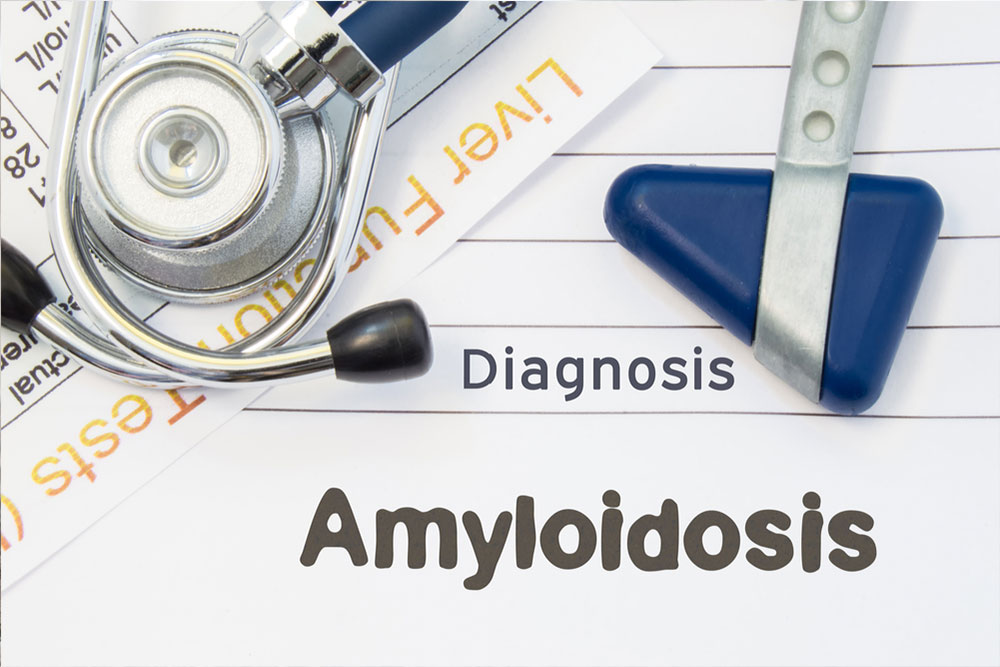Holistic and Natural Methods to Manage Amyloidosis Effectively
Explore comprehensive natural and integrative strategies for managing amyloidosis, including sleep optimization, gentle exercise, dietary modifications, and nutritional support. Combining these approaches with conventional treatments can enhance quality of life and symptom control, offering hope and empowerment for those affected by this complex disease.

Comprehensive Natural and Integrative Strategies for Managing Amyloidosis
Living with chronic illnesses can pose significant challenges to daily routines and overall well-being. Among these, amyloidosis stands out as a complex condition characterized by abnormal protein deposits known as amyloid accumulating in vital organs. This disease can impact the heart, kidneys, liver, spleen, nervous system, and digestive organs, leading to a variety of symptoms and health issues. Although a definitive cure for amyloidosis remains unavailable, a combination of medical treatments and natural, holistic approaches can help manage symptoms, slow disease progression, and improve quality of life. This article explores a variety of natural and integrative strategies to support individuals living with amyloidosis, emphasizing lifestyle adjustments, dietary practices, and supportive therapies that complement conventional care.
Understanding Amyloidosis and Its Impact
Amyloidosis is a group of diseases characterized by the abnormal accumulation of amyloid proteins in tissues and organs. These deposits interfere with normal functions, causing organ damage, compromised health, and varying symptoms depending on the location and extent of amyloid buildup. The most commonly affected organs include the heart (leading to restrictive cardiomyopathy), kidneys (resulting in renal failure), liver, spleen, nervous system (causing neuropathy), and the gastrointestinal tract (leading to malabsorption and digestive issues).
The symptoms of amyloidosis are diverse, often mimicking other conditions, which can delay diagnosis. Patients may experience fatigue, swelling, shortness of breath, numbness, weight loss, and organ-specific symptoms. Because amyloidosis is a progressive disease, early intervention and management are crucial to maintaining health and preventing severe complications.
Traditional medical treatments primarily aim to control symptoms and limit further amyloid deposition. These include chemotherapy, targeted therapies, and organ-specific interventions. Nonetheless, emerging evidence suggests that natural and integrative approaches can provide additional support by bolstering overall health, managing symptoms, and possibly influencing disease progression.
Natural and Complementary Strategies for Symptom Management
Optimizing Sleep to Combat Fatigue
One of the most common and distressing symptoms of amyloidosis is debilitating fatigue, often accompanied by insomnia. The cycle of exhaustion and poor sleep quality can significantly diminish quality of life. Integrative approaches such as sleep hygiene practices, deep breathing exercises, meditation, and relaxation techniques can foster better sleep patterns. Creating a restful sleep environment—cool, dark, and quiet—facilitates restorative rest. In some cases, consulting healthcare providers for sleep therapy options, including cognitive behavioral therapy for insomnia (CBT-I), can be highly beneficial.
Implementing Gentle Physical Activities
Due to muscle weakness, joint pain, and potential cardiac issues, strenuous exercise is generally discouraged for amyloidosis patients. Instead, gentle physical activities tailored to individual capacity can improve circulation, reduce stiffness, and boost energy levels. Practices such as Yoga, Tai Chi, or walking are excellent low-impact options. These activities not only enhance physical well-being but also support mental health by reducing stress and promoting mindfulness. Consistency and moderation are key—listening to your body to avoid overexertion is vital for maintaining safety and comfort.
Dietary Interventions: Low-Sodium Nutrition
Fluid retention and swelling, particularly in the legs and ankles, are common in amyloidosis due to organ impairment. A low-sodium diet can significantly help in managing edema, supporting kidney and heart health, and reducing discomfort. Emphasizing fresh fruits and vegetables, lean proteins, and whole grains while minimizing processed foods high in salt is advisable. Proper hydration, balanced with salt restriction, assists in maintaining electrolyte balance and overall health.
Supporting Nutritional Needs Through Meal Supplementation
Many individuals with amyloidosis encounter difficulties swallowing or have reduced appetite, leading to potential nutritional deficiencies. Incorporating meal replacement shakes, smoothies, or fortified foods can help ensure adequate calorie, protein, vitamin, and mineral intake. These supplements are convenient and can be tailored to specific dietary needs, assisting in maintaining muscle mass, supporting immune function, and preserving cognitive health. Consulting a registered dietitian can provide personalized nutrition strategies to optimize health outcomes.
Additional Supportive Therapies
Complementary therapies such as acupuncture, massage, and herbal supplements may provide additional symptom relief and enhance overall well-being. However, it is important to discuss any complementary treatments with your healthcare provider to avoid interactions with conventional medications. Stress management techniques, including guided imagery and mindfulness meditation, can also help improve mental health and resilience during challenging times.
The Significance of a Multidisciplinary Approach
Managing amyloidosis effectively involves an integrative approach that combines conventional medical treatments with natural strategies to support overall health. Regular monitoring and collaboration among healthcare providers, dietitians, physical therapists, and mental health professionals are essential. Lifestyle modifications tailored to individual needs can make a substantial difference in symptom control, quality of life, and potentially slowing disease progression.
Final Thoughts
While amyloidosis remains a challenging diagnosis, adopting a holistic approach that includes natural, nutritional, and lifestyle strategies can empower individuals to take an active role in their health. By integrating these methods with medical care, patients can experience an improved sense of well-being, increased energy, and better management of symptoms. Always consult with your healthcare team before making significant changes to your treatment plan to ensure safety and appropriateness.





